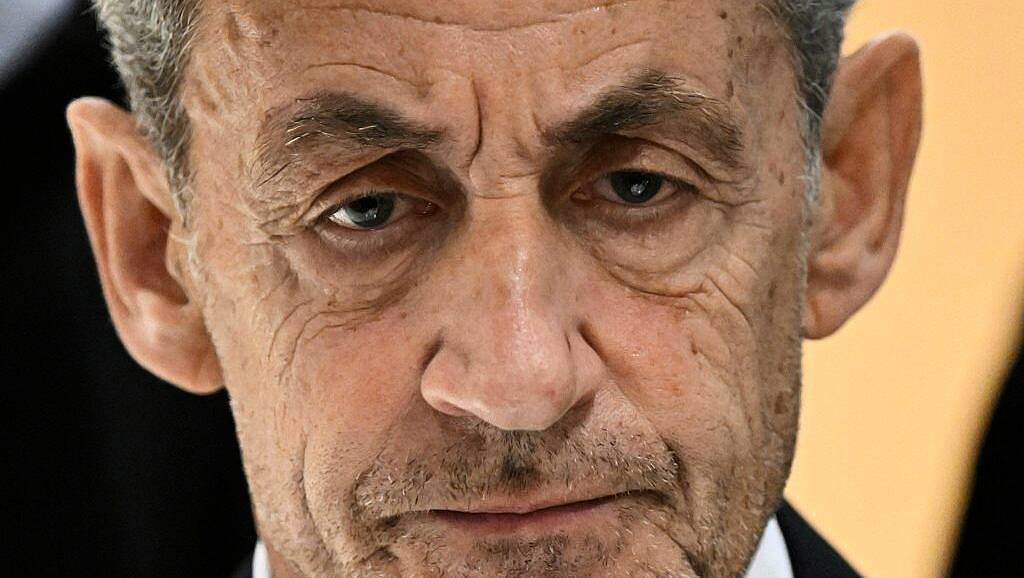Former president Nicolas Sarkozy’s prison sentence has deepened divisions in France over the judiciary’s handling of political wrongdoing, just months before far-right leader Marine Le Pen attempts to overturn her own embezzlement conviction and run for the country’s top office.
A court in Paris shocked the political landscape on Thursday by handing Mr. Sarkozy a five-year prison sentence for criminal conspiracy related to efforts to raise campaign funds from Libya. Should the sentence be enforced, he will become France’s first post-war president to be imprisoned.
Ludovic Friat, president of the USM—the largest union representing French prosecutors and judges—said the ruling demonstrated that no one is above the law, even if some question the court’s motivation. “There will clearly be a before and after this decision,” he said. “In high-profile political-financial trials, some inevitably see judges stepping onto the political stage. What I regret is that too often, this becomes a smokescreen that diverts attention from the offences actually committed.”
### Judges Cracking Down on Political Wrongdoing
As Mr. Sarkozy left the court, he reiterated his innocence and warned that the ruling could undermine public trust in the judiciary. “What happened today is of extreme gravity in regard to the rule of law, and for the trust one can have in the justice system,” he said.
His prison sentence is enforceable immediately. The former president was given a short period to arrange his affairs but is not allowed to avoid imprisonment while awaiting appeal—a contrast to how some French politicians have handled similar situations in the past.
Appeals in such cases can take years, often fueling a perception of impunity among the powerful. As a result, judges are increasingly issuing “provisional execution” sentences that begin immediately, according to lawyers and politicians who spoke to Reuters.
“For several decades, there has been a growing democratic demand for integrity among elected officials,” said Judith Allenbach, president of another judicial union. She added that 89 percent of jail terms over two years are enforced before any appeals process and highlighted that judges are implementing laws passed by parliament mandating tougher penalties for political crimes.
Reflecting the mounting tensions, the Paris prosecutor’s office announced on Saturday that it had launched investigations into threats directed at the lead judge in Mr. Sarkozy’s case. The judge who presided over Ms. Le Pen’s conviction earlier this year has also received threats and has been placed under police protection.
### What Does This Mean for Marine Le Pen?
Marine Le Pen, leader of the far-right National Rally (RN), was convicted of embezzling EU funds in March. She received a five-year political ban that currently bars her from running in the 2027 presidential election. Like Mr. Sarkozy, she was given a provisional execution of the sentence.
Le Pen’s appeal is scheduled for January and will determine whether she remains eligible to run in 2027. She criticized Mr. Sarkozy’s conviction, stating that the increasing use of provisional execution by certain courts “represents a great danger.”
Judicial sources have emphasized that the cases of Le Pen and Sarkozy are distinct, and it is impossible to predict how one ruling might affect the other.
Mr. Friat affirmed that the Sarkozy ruling shows judges remain steadfast in their fight against political corruption. “I can understand her concern,” he said regarding Ms. Le Pen’s stance, while noting that the outcome of her appeals process remains uncertain.
Le Pen’s supporters argue that right-wing politicians face harsher judicial treatment. They point to the case of former centrist prime minister François Bayrou, who was acquitted last year of fraud allegations related to EU fund misuse.
Le Pen’s legal struggles have also drawn international attention. Former US President Donald Trump called her a victim of “lawfare” and sent a diplomatic delegation to offer support.
### Calls for Judicial Reform and Debate
Brigitte Bareges, a right-wing former mayor who was convicted of embezzlement in 2021 and given a provisional political ban (later acquitted on appeal), criticized the justice system. “What we see today is that the justice system, or at least a part of it, has become the weapon of those in power,” she said. “Once, I had faith in justice; today, I’m afraid.”
The justice ministry has not responded to requests for comment on Bareges’ remarks.
Following Sarkozy’s conviction, conservative Senate chief Gérard Larcher acknowledged growing societal debate over the provisional execution of convictions before appeals are exhausted. “I share this concern,” he said.
However, left-wing lawmakers applauded the verdict. Manuel Bompard of the France Unbowed party stressed, “The requirement to be honest and respect the law is not reserved for the public. It also applies to those in power.”
Amid mounting calls to repeal the provisional execution measure, Prime Minister Sébastien Lecornu told *Le Parisien* on Friday that “if a law gives rise to debate, it is up to parliament to address it.”
https://www.breakingnews.ie/world/update-1-sarkozy-jailing-reignites-debate-over-french-political-justice-ahead-of-le-pen-appeal-1811902.html
